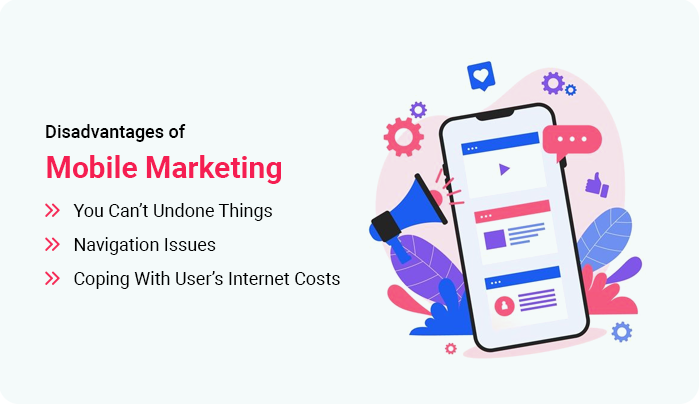What is the impact of mobile marketing on e-commerce? Mobile marketing has gotten to be crucial for businesses looking to interface with their target group of onlookers. With the surge in smartphone utilization, buyers are progressively turning to their portable gadgets to investigate, shop, and make buying choices.
In this mobile-centric time, understanding the effect of portable promoting endeavors is vital for e-commerce victory. One key angle that plays an essential part in this understanding is versatile showcasing attribution. This article can offer assistance to help you get the noteworthy part of versatile showcasing attribution in e-commerce.
What Is Mobile Marketing on E-commerce?

Mobile marketing attribution decides and allocates esteem to different touchpoints along a customer’s journey, eventually leading to a transformation or a wanted activity. In less complex terms, it makes a difference for businesses to distinguish which promoting channels, campaigns, or intelligence essentially impacted a client to make a purchase on their versatile device.
Read Also: Top 5 + Affiliate Marketing Networks for Mobile Apps 2025
Mobile showcasing attribution is a complex preparation that envelops different stages. To begin with, ventures screen client intelligence over assorted channels and touchpoints like mail, social media, etc.
They too keep tabs on client exercises, counting clicks and establishments, and connect them with particular promotional activities. At that point, businesses can use attribution models to get at the adequacy of distinctive showcasing channels and touchpoints in impacting client behaviors.
Role of Mobile Attribution in E-commerce
Effective attribution in e-commerce is significant. It gives profitable experiences into the client travel, empowering businesses to comprehend the different touchpoints that contribute to a transformation. By absolutely ascribing deals or transformations to particular showcasing channels, campaigns, or intuitive brands, they can fine-tune their promoting procedures and designate assets effectively.
The objective of attribution is to help e-commerce businesses in pinpointing the most powerful promoting channels, measuring the ROI of their campaigns, and making educated, data-driven choices to improve by and large performance. What is the impact of mobile marketing on e-commerce?
By comprehensively understanding client behavior and the variables affecting their acquiring choices, e-commerce brands can tailor their showcasing activities to reach the right group of onlookers at the right time, lifting change rates and maximizing revenue.
Benefits of Showcasing Attribution for E-commerce Businesses

Mobile marketing strategy offers a few critical benefits for e-commerce businesses, making a difference in them making educated choices, optimizing procedures, and upgrading in general execution. Here are a few key advantages:
Optimized Promoting Strategies
By precisely crediting deals or changes to particular channels or campaigns, intelligent e-commerce businesses can optimize their showcasing techniques. By centering on the most effective channels and campaigns, they can apportion assets more successfully, making strides in general effectiveness and return on speculation (ROI).
Resource allocation
Attribution empowers businesses to designate their showcasing budget shrewdly. Understanding the effect of each channel permits key asset assignment, coordinating more stores towards high-performing channels and minimizing speculation in less viable ones.
Measuring ROI
Attribution makes a difference in measuring the return on venture for distinctive showcasing activities. This data is pivotal for evaluating the victory of campaigns and deciding which endeavors contribute most to the bottom line.
Data-driven decision-making
With attribution, e-commerce businesses can make data-driven choices. The bits of knowledge picked up from attribution models enable marketers and decision-makers to base their procedures on concrete information, diminishing dependence on guesswork.
Performance improvement
Understanding the adequacy of different touchpoints and channels empowers businesses to recognize ranges for enhancement. Whether it’s refining advertisement creatives, altering informing, or optimizing client encounter, attribution information guides businesses in improving their by and large performance.
Targeted showcasing efforts
A comprehensive understanding of client behavior and the variables impacting their obtaining choices permits e-commerce brands to tailor their promoting endeavors. This focused on approach makes a difference reach the right gathering of people with the right message at the right time.
Enhanced transformation rates
Businesses can progress change rates by refining promoting procedures based on attribution experiences. Focusing on clients with more pertinent and personalized substance at basic touchpoints in their travel increments the probability of conversions.
Mobile marketing attribution is a foundation for victory in the e-commerce domain. It gives businesses the experiences to optimize their promoting procedures, designate assets viably, and improve the in general client involvement. What is the impact of mobile marketing on e-commerce?
As the versatile scene proceeds to advance, grasping vigorous attribution models will be fundamental for remaining ahead in the competitive e-commerce advertise. Those who saddle the control of versatile showcasing attribution will survive and flourish in the energetic world of computerized commerce.
Advantages and Disadvantages of Mobile Marketing

Mobile marketing offers preferences like wide reach, real-time engagement, and personalization, but it moreover presents challenges such as potential rudeness, security concerns, and specialized obstacles. Businesses must carefully adjust the benefits with the dangers to make compelling and user-friendly campaigns.
Advantages:
Wide Reach: Versatile gadgets are omnipresent, permitting businesses to reach a enormous worldwide gathering of people.
Real-Time Engagement: Portable showcasing empowers moment communication with clients through SMS, thrust notices, and social media advertisements.
Personalization: Portable promoting permits for profoundly focused on and personalized messages based on client information expanding engagement.
Cost-Effectiveness: Compared to conventional promoting, portable promoting can be a more reasonable way to reach a huge gathering of people.
Location-Based Focusing on: Businesses can target clients based on their geographic area, advertising important bargains and data.
Related Article: How Does Social Media Negatively Affects Teens Relationships?
Measurable Comes about: Portable promoting campaigns are effortlessly followed and analyzed, permitting for optimization and superior ROI.
Increased Deals: Portable promoting can drive coordinate deals through click-to-buy choices and simple get to to items.
Improved Client Encounter: When done right, versatile promoting can improve the by and large client involvement by giving significant data and offers.
Disadvantages:
Intrusiveness: Forceful or ineffectively focused on versatile showcasing can be seen as meddling and irritating, driving to negative brand perception.
Privacy Concerns: Collecting and utilizing individual information for portable promoting can raise security concerns among users.
Technical Obstacles: Versatile showcasing requires cautious optimization for different gadgets, screen sizes, and working frameworks.
Limited Consideration Span: Clients have brief consideration ranges on versatile gadgets, making it challenging to capture their attention.
Ad Blocking: Clients can piece advertisements on their versatile gadgets, diminishing the reach of promoting campaigns.
Potential for Negative Viral Substance: If a versatile campaign is ineffectively executed, it can lead to negative reputation and harm a brand's reputation.
Data Protection and Security: Information breaches and abuse of client information can lead to legitimate issues and harm trust.
Navigation Issues: Ineffectively outlined portable websites or apps can baffle clients and lead to a negative encounter.
Conclusion
The impact of mobile marketing on e-commerce is clear: it’s transforming how brands interact with customers, increase sales, and build loyalty. With more people shopping on mobile devices every day, mobile marketing is no longer optional it’s essential.
To stay competitive, e-commerce businesses must focus on mobile-first strategies, from optimized websites to smart push notifications and mobile ads. When done right, mobile marketing can lead to better engagement, higher conversion rates, and long-term business growth.



